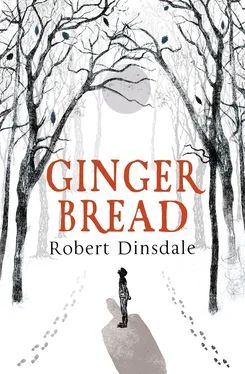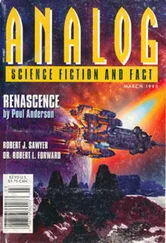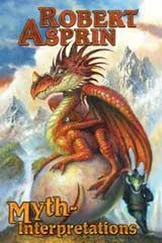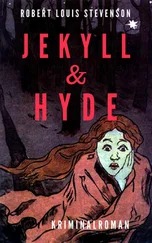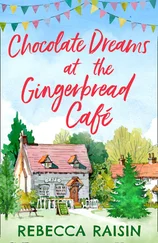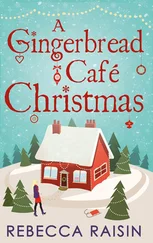‘You do it,’ says Grandfather, putting his shoulder to the backdoor, ‘with kindling.’
Grandfather has to strain to force the door, but then it crunches and gives way. Outside, the snow is piled high, and Grandfather’s hands are too big to reach through. Now it is the boy’s turn to show Grandfather how. He reaches through the crack, shovelling enough snow away that they can both squeeze out, into a garden bound by winter. It is bigger than it seemed from inside, bordered on three sides by walls of forest.
‘Do you remember it, boy?’
The memory is only faint, but the boy nods. ‘Mama brought me, with a picnic.’
Grandfather whispers, ‘She never told me.’
‘Do you remember it, papa?’
‘Oh, better than I ought. But I was a young man, then, and should have known better. Your mama was born in those four walls. Did you know that?’
The boy looks back. It is only a house, he tells himself, in the same way that those maps on Yuri’s floor are real maps. It is like a story written down but screwed up and cast away when its teller can’t find the words: out of shape, words and bricks heaped up without sense or form. It can hardly be a place where mama once lived.
‘Here?’
‘She was smaller than you when we left. I always hoped she wouldn’t remember, but once something’s in your head, you don’t shed it so easily.’
‘Why did you leave?’
‘Because, boy, there are things in the forest, things not fit for a baby girl.’
From the tone of his voice, he does not mean to go on. He takes one big stride, then another, and in his wake the boy follows.
Although the snow is thick on top of what used to be a vegetable patch, under the trees it is only light dust. They tramp beneath the boughs and, only a few yards in, Grandfather stomps his jackboot down. The frost is like a layer of hard sugar, and it cracks under his heel.
He begins by stripping tiny twigs and dead bark from the trunk of a black alder. A little further in, an oak has long ago been uprooted and now lies dead on the forest floor, slowly rotting away. Mosses grow across its surface, like a bison’s winter hide, but Grandfather scrapes a patch away and exposes the dead wood underneath. The axe sinks easily into the first layers, and chips of cold wet trunk shower down. The smell is cold and stagnant, and billows up in great clouds to make the boy sneeze.
‘See,’ says Grandfather. He has chipped deep into the trunk, where the wood is dry and flaking. ‘You can start a fire with this more easily than a match.’
The boy peers closely. ‘But how do you know?’
‘Don’t you think your old papa might know how to start a fire?’
‘I’ve seen you start a fire, papa. You turn the gas and strike a match.’
‘Boy, that’s barely a fire at all. Those are fires for poor old men in their tenements. I wasn’t always so very old.’
The boy replies, ‘But I’m not old, and I don’t know about fires.’
‘I wasn’t the same kind of boy as you,’ grins Grandfather. ‘I was a little bit … wilder.’
Kindling, it turns out, is twigs and flakes of trunk and even bits of bird nest that the boy finds hidden away in a hole in the dead tree. With hands and pockets full, they go back into the house.
Grandfather says there hasn’t been a fire here for years. He drops down at the hearth, props the axe against the stone, and piles the kindling in a dark mound.
The boy hugs the wall at the edge of the room. His eyes linger on the hunched figure of Grandfather, then flit to the threadbare chair, the crumbling stairs. Perhaps it should not take so very much imagination to see pictures on the walls, the windows opened up, a proper banister and bedroom above. Yet, when he tries to see mama here, the cobwebs in the corners fight back, and the idea of a baby crawling on these floors is preposterous. Only a baby animal could live here, some wild thing out of the forests.
Terrifying, to think of the long ago years before you were real; more terrifying even than to think of the things mama misses, now she is gone.
In the hearth, Grandfather has no matches. Yet, he has sculpted a model out of the twigs and pieces of nest that imitates fire exactly, licking up in the shapes of flame. His head is low, and his lips move in a whisper. Then, as if from nowhere, there is light. It spirits from Grandfather’s lips and dances along the strands of nest. Tiny tendrils of red rush forth, spreading a fiery web.
‘Papa!’
Grandfather turns, his face lit from behind by the stirring orange. ‘It’s been a long time, boy …’
Into the orange orb Grandfather piles the rest of his kindling. Soon, the glow is stronger. These, he explains, are embers. How they appeared, the boy does not know – for Grandfather is just an old man from a tenement, and surely he does not know sorceries and enchantments. The rest, the boy understands. To turn those embers into roaring fire you have to add scraps of cloth axed from the old armchair, and even a piece of floorboard. Then, when the fire darts and spits and dances in the grate, you can put a pot in and melt down snow.
If you melt snow, you get water. And if you boil up water, you can use it to soften the frozen ground so that the axe can dig down. In this way, Grandfather excavates a tiny crater in the roots of a black oak. Once he is done, he unwraps mama’s urn. When the boy peeps in, he is expecting to see the bits of mama left behind, the bone of a finger with baba’s ring still on it, a lock of hair or a piece of heart, but instead it is only grey dust. Gently, Grandfather upturns the urn and piles her in the hole.
‘Go on then,’ says Grandfather. ‘Say goodbye.’
The boy looks at the pile of dust. Then he looks at Grandfather. ‘Goodbye.’
‘Not to me, you little …’ Grandfather cuffs him, gently, around his shoulder. ‘Did you think I was leaving you behind? Say goodbye to your mama.’
His eyes fall back on the dust. ‘I won’t see her again.’
‘No,’ whispers Grandfather, ‘not like this.’
‘But papa, we can come for …’
Grandfather cuts him off. ‘Goodbye, Vika.’
Now a chill wind blows up through the alders and the peak of the little pile of dust is caught and spirited away. When Grandfather sees it he drops to his knees to cover mama’s dust with dirt. Once that is packed down – the boy helps pat it flat – he smears the snow back over. The sky is heavy and, as soon as it starts falling again, there’ll be no mark that mama was ever here.
‘Is it a grave?’
‘No, not a grave.’
‘Then what?’
Grandfather’s eyes are wet. ‘It was summer when your Grandma … I didn’t come here, boy, though she begged me to. It was your mama who scattered her in these trees. This forest, that’s what your baba is now. And it’s what your mama is too.’
He nods.
‘It all goes back to the ground. Then it gets eaten up. And then there’s trees and flowers.’
‘And nettles and thistles?’
Grandfather nods. ‘All the bad stuff too, but don’t forget the good. There are wolves in this forest that ate rabbits in this forest that ate grasses that grew on your Grandma.’
The old man feels the boy’s hands, tells him they are frozen, that they’ll have to get warm before frostbite eats every finger. This is a thing to set the little boy thrilling, because to lose a finger in the forest would be a very great adventure.
As they turn back to the house, the boy cannot help seeing the look in his Grandfather’s eyes. It is not one he has seen before. He has seen him angry, and he has seen him sad, but fear has a way of making the eyes crease – and fear is what he sees now. His hand falls from Grandfather’s own, and as the old man tramps inside, the boy looks back at the tree that will drink up mama, and the still dark beneath the branches.
Читать дальше
